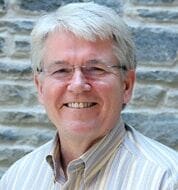Toronto as a Ministry Incubator: An Interview with Barry Parker

Barry Parker is rector (senior pastor) of St. Paul’s Bloor Street, an Anglican church in downtown Toronto. I’m grateful that Barry was willing to answer some questions about ministry in Toronto.

You’ve served as Rector at St. Paul’s Bloor since 1998. How would you describe the spiritual condition of downtown Toronto?
What you see day to day is urban veneer. I think urban Toronto is spiritually elastic and that often exhibits as pluralistic, materialistic and secular. However, when you scratch the surface in any way—whether it be honest interaction, a crisis, or general life exhaustion—our experience is that there is a deeper hunger for hope, meaning and purpose.
A lot of downtown churches, like St. Paul’s, began when Christianity was conflated with Christendom and held a privileged position in the culture. What adjustments are necessary as we adapt to a context in which the church has lost much of its influence?
All of our historic systems, structures and understanding of ministry, the positional authority of the pastor for example, are going or gone in this post-Christendom era. Adaptability in numerous small and seemingly irrelevant ways instead of the big large group connections now are the norm. The historic attractional model of ministry, open the doors and they will come, is gone. Even the missional movement has been co-opted by expediency and innate institutionalism. In other words, we always seem to inevitably try to program or package all aspects of ministry. I think the organic contextualization of the unchanging Gospel of Jesus Christ is the way forward. It is messy, challenging, yet faith inducing.
We can learn lessons from churches in places like London, New York, and Seattle. What are the benefits and dangers of applying these lessons here?
The benefit is that we can see what ministry looks like on the ground to help us think/reflect through what we need to do where we are in downtown Toronto. As a caveat, where we look matters. I think London and the U.K. are a decade farther down the secularization road than the U.S. I see Americans as still culturally religious, even in the NW & NE. Hence I find it more profitable to lean into the British experience than the vast majority of American material.
The real danger is that we often look anywhere else but where we are planted in panic or trying to find an easier way to do ministry. We habitually think that ‘they’ have the solution/answer/ministry I need because it looks easier somewhere else than the challenges of where I am planted.
What does ministry success look like in downtown Toronto?
I don’t like the word ‘success’ as it is fleeting and inherently secular. However, effectiveness through relational evangelizing and formational discipleship is crucial. This includes missional engagement, dynamic worship, Gospel community, contextualized service, whole life learning—all bathed in prayer.
It’s easy for us to love Toronto because we live here. Why should others care?
Urban ministry is the proverbial canary in the mine. Contra the Canadian joke, it is not that Toronto is the center of the universe. Rather, Toronto increasingly reflects the urbanization and globalization of our day with all of its complexities, challenges and humanly limiting/flourishing lifestyles and worldviews. It is a ministry incubator of sorts.
Previous posts:
- Understanding Toronto
- From Canada’s Bible Belt To Toronto: An Interview With Tim Strickland
- The Spiritual Condition of Toronto
- As Toronto Goes: An Interview With Bert Thomson
- The “Move Back” Idea






